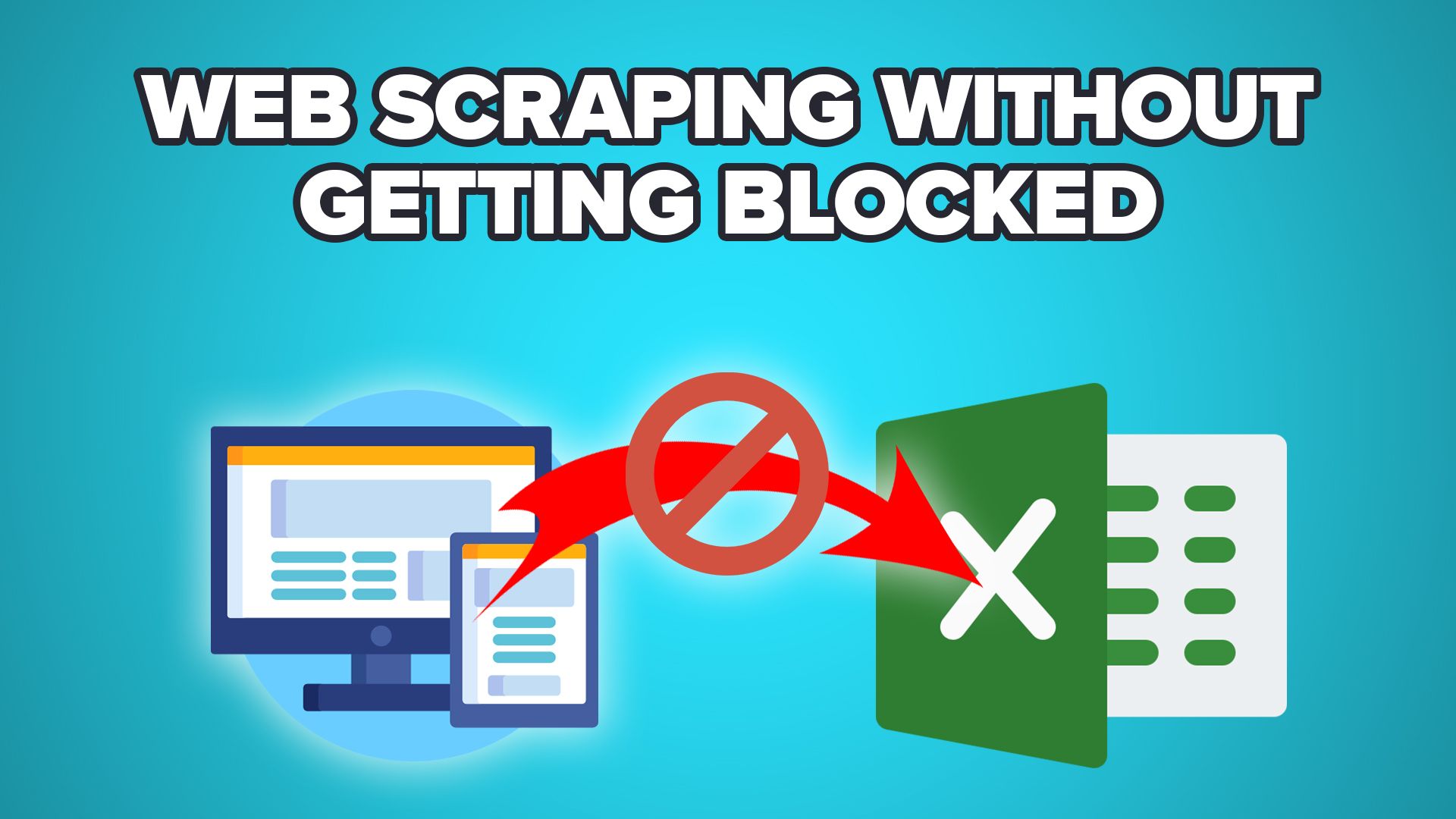So, you’ve put together your next web scraping project.
You’ve found the data you want to scrape and set up your scraper to extract it.
But there’s a problem. Your web scraper is being blocked by the website you want to extract data from.
As web scraping becomes bigger, some websites will block you from scraping their website.
While this can be very frustrating, the fix is quite easy.
We are ParseHub and today will show you 5 ways you can web scrape a website without getting blocked.
So let’s get started!
5 ways of web scraping without getting blocked
The 5 ways to web scrape a website without getting blocked are:
- IP rotation
- proxies
- Switch user agents
- Solving captcha services or feature
- Slow down the scrape
Now let’s go into detail for each
#1 IP rotation
Sometimes, when a website notices that an unfamiliar bot or spider is crawling their website, they will note the IP address they are coming from. They will then add this IP address to a temporary or permanent block list.
This way, they can prevent unfamiliar bots or spiders from crawling or scraping their website.
Unfortunately, this applies to web scrapers too. Which can result in your web scraper not scraping any data at all.
Now, how exactly can you get around IP blocks from websites when trying to scrape data?
Well, first, we’d recommend you use a web scraper that runs in the cloud. This way, the web scraper is not running off of your local IP address.
Second, and most importantly, you will want to enable IP Rotation on your cloud-based web scraper. IP Rotation will let your web scraper use a different IP every time it requests a website.
#2 Proxies
When scraping a website, your web scraper can often be identified and blocked based on your IP address. IP recognition is the first line of defence that websites use. If you exceed the number of requests a website allows to make or connect using a bad quality IP address, you’ll likely encounter a CAPTCHA or your IP might even get blocked.
To avoid that, you can use proxies. A proxy server acts as a middleman - it sends requests to a website and retrieves the data for you. While doing so, it will mask your IP address on its own.
Big web scraping projects require thousands of connection requests – you can’t possibly do that from a single IP. So, people often use rotating proxies. Some choose rotating data center proxies for their speed and affordable price.
But the best way to hide your IP address and to mimic human-like behaviour is by using rotating residential proxies.
#3 Switch User agents
Similar to IP rotation, you can switch user agents when web scraping.
A user agent is a string that a browser or application sends to each website you visit. A string usually contains data like:
- the application type,
- operating system
- software vendor
- And software version of the requesting software user agent.
Some websites will examine User Agents and block requests from User Agents that don’t belong to a major browser.
For ParseHub, If your project does not have IP rotation enabled, your runs will have the following user agent
UserAgent Mozilla/5.0 (Macintosh; Intel Mac OS X 10.12; rv:54.0) Gecko/20100101 Firefox/54.0.
If your project does have IP rotation enabled, ParseHub will also rotate through a variety of UserAgents.
#4 Solving Captcha Services or feature
Some websites ask you to solve a Captcha to access their data. This is one of the most common ways websites will crackdown on web crawlers and scrapers.
In short, CAPTCHA is a response test that is used to determine if the user is human or not. Some websites implement captcha to their website to detect bots and will prevent their website from getting scrapped if the captcha isn’t solved.
Luckily today, there are several solutions available like Captcha solving services and features to solve this problem.
Some web scrapers will allow you to add Captcha solvers to your project to scrape Captcha-enabled websites.
Learn how to solve Captcha with ParseHub
#5 Slow down the scrape
Some powerful web scraping tools can extract large amounts of data in just a few minutes!
However, since this doesn’t look natural or human-like, some websites will detect this and further prevent future scraping and even block you.
You can slow down your scrape by:
- adding some time delay to your request
- using our wait command
- or limiting the number of workers on your project.
Slowing down your web scraping will seem more natural and will lower the risk of you getting blocked.
Learn how to manage the workers or slow down your scrape
Closing Thoughts
And there you have it, you have 5 ways you can web scrape data without getting blocked!
If you’re looking for a web scraper that can scrape data without getting blocked, we think you’ll enjoy ParseHub, it’s free to use and download!
If you are having trouble with any web scraping project, you can contact our customer support team using our live chat, where they’ll be more than happy to assist you!
Happy Scrapping!

